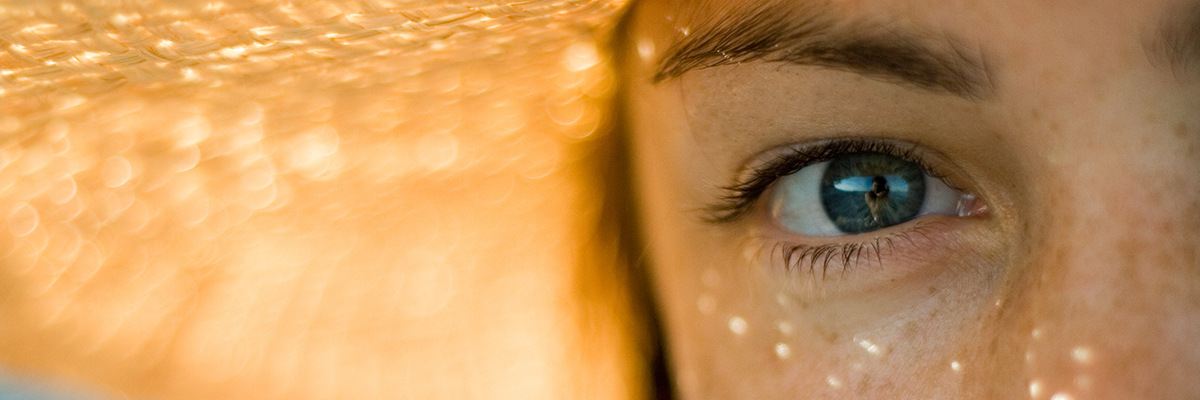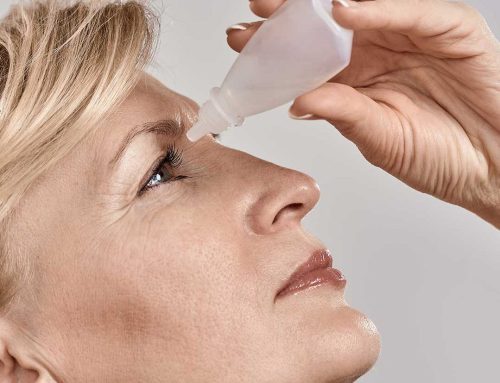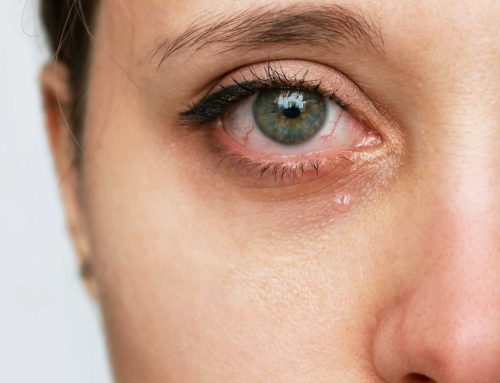
Managing Dry Eye in the Summer
Solutions For Hot Weather
Eye Health | by Dr. Anita Narang
Learn how managing dry eye in the summer is not as difficult as you think. When weather conditions are changing, temperatures and humidity are usually going up, but AC can bring in extreme dryness to your home.
Understanding How Dry Eye Changes in the Summer
The summer season is reportedly the easiest time for folks who struggle with managing dry eyes symptoms. This is primarily due to the high humidity. But rising temperatures and lots of sunshine bring their own challenges for those living with Dry Eye Disease (DED). With the right strategies and proactive measures, you can effectively manage your DED and still enjoy the wonderful sunshine and ocean breezes on Vancouver Island.
Dry eye disease occurs when the eyes do not produce enough tears or when the tears evaporate too quickly, resulting in insufficient lubrication and moisture on the ocular surface. In the summer months, several factors can affect your dry eye symptoms:
Increased Evaporation: Hot and dry weather accelerates tear evaporation, leading to faster depletion of the tear film and exacerbating dryness and discomfort.
UV Radiation: Exposure to ultraviolet (UV) radiation from the sun can cause inflammation of the ocular surface, intensifying dry eye symptoms.
Outdoor Activities: Summer activities such as swimming, hiking, and outdoor sports expose the eyes to environmental factors like wind, dust, and allergens, which can aggravate dry eyes.
Air Conditioning: While air conditioning provides relief from the heat, it can also create a dry indoor environment, further aggravating dry eye symptoms for some individuals.
Managing Dry Eye in the Summer
Here are several strategies that can help you effectively manage and alleviate dry eye symptoms during the summer months:
Lumecca-i and Forma-i: book an appointment with Island Eyecare to discuss if the gentle and effective treatments are an option for you. Lumecca-i and Forma-i are non-invasive treatments that use radiofrequency and Intense Pulsed Light (IPL) to treat and alleviate dry eye symptoms.
Use Lubricating Eye Drops: Keep artificial tears or lubricating eye drops on hand to replenish moisture and relieve dryness and discomfort. Use drops as needed, especially after spending time outdoors or in air-conditioned environments.
Wear Sunglasses: Choose sunglasses with 100% UV protection to shield your eyes from harmful UV rays and reduce tear evaporation. Wraparound styles provide added coverage and protection from wind and dust.
Limit Outdoor Exposure: Minimize outdoor activities during peak sunlight hours and windy conditions to reduce exposure to environmental factors that can worsen dry eye symptoms. Take breaks in shaded areas or indoors when possible.
Maintain Indoor Humidity: Use a humidifier indoors to maintain a comfortable level of humidity, especially if you’re spending a lot of time in air-conditioned environments. Adequate humidity can help prevent excessive evaporation of tears and alleviate dry eye symptoms.
Stay Hydrated: Drink plenty of water throughout the day to stay hydrated and maintain adequate tear production. Dehydration can exacerbate dry eye symptoms, so make it a habit to carry a water bottle and drink regularly, especially in hot weather.
Practice Good Eyecare Habits: Avoid rubbing your eyes, as this can further irritate the ocular surface and worsen dry eye symptoms. Be gentle when drying your face after swimming or showering, and use a clean towel to pat your face dry. Clean your eyelids with the medical-grade Belphaclean Eyelid wipes.
FAQs
Q: Does dry eye get worse in the hot weather?
A: Yes. And no. It depends. Dry Eye Syndrome (DES) can worsen in hot weather due to increased tear evaporation, sun exposure, and outdoor activities. Preventive measures like staying hydrated, using lubricating eye drops, and minimizing outdoor exposure during peak sunlight hours can help alleviate discomfort, but in regions where humidity is high, dry eye symptoms can improve.
Q: Can humid weather cause dry eyes?
A: Humid weather can improve symptoms of dry eye, because it provides a more moist environment, but humidity can also increase the growth of indoor molds and dust mites which can contribute to dry eyes.
Q: Can drinking water stop dry eye?
A: Drinking water is essential for overall body hydration and can support managing dry eye, but it cannot directly prevent or improve the symptoms of dry eye on its own.
Q: Does AC make dry eye worse?
A: Yes, air conditioning can worsen dry eye symptoms by reducing indoor humidity levels, accelerating tear evaporation and leading to ocular surface dryness. Transitioning between indoor and outdoor environments with differing humidity levels can exacerbate these symptoms further.
Q: Why does heat help dry eyes?
A: Heat helps dry eyes by improving the flow of oils from the eyelid glands, stabilizing the tear film, and preventing excessive evaporation. It also promotes blood circulation to the eyes, reducing discomfort and irritation by facilitating the delivery of nutrients and moisture to the ocular surface.
Managing dry eye is best done proactively with some minor lifestyle adjustments, protective measures, and an eye care routine. Keep your body and your eyes hydrated, limit your midday sun exposure, and maintain indoor humidity of your residence. Don’t hesitate to reach out to an eye care professional for support and guidance in managing your dry eye symptoms.
Dr. Anita Narang





